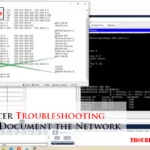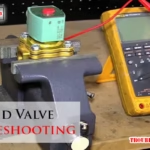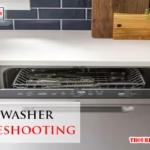Is your Buderus boiler acting up and leaving you frustrated? Don’t worry—you’re not alone.
A malfunctioning boiler can turn your home into an uncomfortable space faster than you think. But here’s the good news: many common Buderus boiler issues can be fixed without calling in an expensive repair service. In this guide, we’ll walk you through simple troubleshooting steps to get your boiler back on track.
Whether it’s strange noises, uneven heating, or error codes flashing on the display, you’ll find practical solutions that are easy to follow. So, if you’re ready to save time, money, and stress, keep reading—you’re just a few steps away from a warm, worry-free home.
Common Boiler Problems
Dealing with boiler issues can be frustrating, especially when you rely on your Buderus boiler for heat and hot water. The good news? Many common problems can be fixed without calling a professional. Let’s tackle some of the most frequent boiler problems and how you can address them.
No Heat Or Hot Water
When your boiler isn’t providing heat or hot water, the issue might be simpler than you think. Check the thermostat settings first—are they set too low? If the thermostat is fine, look at the pilot light or burner; it could be off or blocked.
Another possible cause is a broken diaphragm or airlock. These parts can wear out over time. Replacing them might restore the system, but if you’re unsure how to do it, calling a professional is safer.
Low Pressure Issues
Low pressure can stop your boiler from working efficiently. Check the pressure gauge on your boiler—it should be between 1 and 2 bars. If it’s below that, your system needs more water.
You can add water by using the filling loop, which is typically located under the boiler. Be careful not to overfill it. Too much pressure can cause leaks or damage to your system.
Unusual Noises
Banging, whistling, or gurgling sounds coming from your boiler can be alarming. These noises are often caused by trapped air, limescale buildup, or low water flow. Bleeding your radiators can help release trapped air.
If the noise persists, check for limescale in the heat exchanger, especially if you live in a hard water area. Flushing the system may solve the problem. Don’t let these noises go unchecked—they could lead to bigger issues later.
Boiler Leaks
Leaks are a clear sign something’s wrong. The source could be a worn-out seal, a corroded pipe, or excessive boiler pressure. Start by inspecting the visible pipes and joints.
If you spot a leak, turn off the water supply to prevent further damage. Small leaks might be fixable with sealant, but larger ones usually need professional attention. Ignoring leaks can lead to costly repairs down the road.
Have you faced any of these problems before? Tackling them early can save you time, money, and stress. Always consider your safety first, and when in doubt, consult an expert.

Checking The Boiler’s Pressure
Your Buderus boiler is the heart of your home’s heating system. If it’s not running smoothly, checking the boiler’s pressure is often the first step to getting it back on track. Boiler pressure that’s too high or too low can cause heating issues and even damage the system. Let’s dive into what you need to know about identifying and fixing pressure problems.
Signs Of Pressure Problems
How do you know if your boiler’s pressure needs attention? One obvious clue is a lack of consistent heating. If your radiators are not warming up properly, your boiler’s pressure could be too low.
Take a look at the pressure gauge on your boiler. Ideally, it should read between 1 and 1.5 bars when the system is off. If it’s below this range, the system needs repressurizing. If it’s above, you may need to release excess pressure.
Another sign is water leaks. High pressure can force water out of the system, causing noticeable drips or puddles near the boiler. Have you noticed unusual noises like banging or whistling? These might also signal pressure problems.
How To Repressurize The System
If your boiler’s pressure is too low, don’t worry—it’s usually a simple fix. First, locate the filling loop. This is a small flexible hose, typically underneath your boiler. You’ll see two valves attached to it.
Turn off your boiler before proceeding. Slowly open both valves on the filling loop. You’ll hear water start to flow into the system. Keep an eye on the pressure gauge—it’s crucial not to overfill.
Once the gauge reaches the ideal range (1 to 1.5 bars), close both valves tightly. Turn your boiler back on and check that it’s working properly. Does the heating feel consistent now? If not, you may need to troubleshoot further or consult a professional.
Don’t let a pressure issue linger—it can lead to bigger problems if ignored. Regularly checking and maintaining your boiler’s pressure can save you time, money, and stress in the long run.
Dealing With Error Codes
Dealing with error codes on your Buderus boiler can feel overwhelming. These codes indicate specific issues that need attention to restore normal operation. Understanding what these codes mean and how to address them is crucial. This guide will walk you through common error codes and how to reset your boiler effectively.
Understanding Common Error Codes
Buderus boilers display error codes to point out issues. Each code represents a specific problem. For instance, an “EA” error code often means ignition failure. This could indicate a gas supply issue or a faulty ignition system. Another common code is “A7,” which points to a faulty domestic hot water sensor. Paying attention to these codes can help identify the problem faster.
Some codes, like “6A,” signal a blocked flue or vent. This might occur if debris blocks the exhaust pathway. Other codes, such as “E2,” may indicate problems with the flow temperature sensor. Knowing the meaning behind these codes can save time during troubleshooting.
Steps To Reset The Boiler
Resetting your Buderus boiler is often the first step to resolve errors. Start by locating the reset button on your boiler’s control panel. Press and hold the button for a few seconds. This action clears minor faults and restarts the system.
Check the display panel after resetting. If the error code disappears, the issue may be resolved. If the code remains, try turning off the boiler completely. Wait for at least 30 seconds before turning it back on. This can sometimes clear persistent errors.
If the error code still shows, consult your boiler manual. Some errors may require professional assistance. Avoid attempting repairs beyond basic troubleshooting steps to prevent further damage.
Addressing Leaks
One of the most common issues with Buderus boilers is leaks. While they can be a headache, the good news is that most leaks are manageable with a little troubleshooting. Knowing where to start and how to handle leaks can save you time, money, and frustration.
Identifying Leak Sources
Before fixing a leak, you need to pinpoint its source. Is water pooling under the boiler, or is it dripping from a specific pipe? Take a close look at the joints, valves, and seals.
Sometimes, the leak might stem from loose fittings. Check if any connections feel loose or if there’s visible wear and tear. Pay attention to pressure levels too. If the boiler pressure is too high, that could be forcing water out through the pressure relief valve.
If the source isn’t obvious, use a paper towel to trace the leak. Wipe different areas and see where the water appears first. This quick trick can help you narrow down the problem.
Temporary Fixes For Leaks
Once you’ve identified the source, you can apply a temporary fix. Got a loose joint? Tighten it gently with a wrench. Don’t overdo it, though, as too much force can cause damage.
If a pipe is leaking, consider using plumber’s tape to seal it temporarily. Wrap the tape around the leak to stop the water until you can arrange a permanent repair. It’s not a long-term solution, but it can buy you some time.
For small cracks in metal components, epoxy putty can work wonders. Knead the putty and press it over the crack. Let it harden as directed, and it should hold until a professional can assess the damage.
Is the pressure relief valve the culprit? You might be able to release some pressure manually. However, if you’re unsure how to do this safely, it’s better to call a technician.
Leaks might seem intimidating, but with a little patience and attention, you can address them effectively. Have you ever faced a stubborn boiler leak? What worked for you? Share your tips below!
Solving Thermostat Issues
A thermostat issue is one of the most common problems that can interfere with your Buderus boiler’s performance. If your heating system isn’t responding as expected, your thermostat might be the culprit. Addressing these problems doesn’t have to be overwhelming—you can tackle them with a few straightforward steps.
Calibrating The Thermostat
Sometimes, your thermostat might lose its accuracy, causing your boiler to heat your home unevenly. Calibration can solve this. Begin by comparing your thermostat reading with a reliable indoor thermometer.
If the readings don’t match, adjust the thermostat’s settings. Follow the manual that came with your Buderus boiler for precise calibration instructions. Make sure the thermostat is placed in an area free from direct sunlight or heat sources, as these can affect its reading.
Have you ever noticed your room feeling warmer than the thermostat indicates? That’s a sign calibration is overdue. Fixing it can save energy and ensure your home stays comfortable.
Replacing Faulty Thermostat Components
Not every thermostat issue can be fixed by calibration. Sometimes, the internal components may wear out, especially if your thermostat is older. If you suspect this, start by checking the wires and connections for visible damage.
For instance, loose or frayed wires can interrupt the signal between your thermostat and boiler. Tighten connections or replace damaged wires. If the display screen isn’t working, the issue could be with the internal circuitry, which may require replacement.
Replacing parts might sound intimidating, but most thermostats come with straightforward instructions. Think about whether you’d prefer to attempt the repair yourself or call a professional for help. Either way, ensuring a fully functional thermostat will prevent bigger boiler issues down the line.

Cleaning And Maintenance Tips
Keeping your Buderus boiler in top shape doesn’t have to be a headache. Regular cleaning and maintenance are essential to ensure it runs efficiently and lasts longer. Whether you’re dealing with limescale buildup or wondering when to call a professional, the following tips will help you stay ahead of potential issues.
Removing Limescale And Debris
Mineral buildup like limescale can wreak havoc on your boiler’s efficiency. If you live in an area with hard water, this is especially important. Over time, limescale can clog pipes, reduce water flow, and even lead to overheating.
Start by locating the heat exchanger, as this is where limescale often accumulates. Use a descaling solution designed for boilers to flush out the buildup. Follow the manufacturer’s instructions carefully—overusing chemicals can cause more harm than good.
Don’t forget to clean the burner and other components, as dust and debris can block proper airflow. A soft brush or vacuum cleaner with a nozzle attachment works well for this. Just make sure the boiler is completely off and cool before you start cleaning.
Have you noticed strange noises, like banging or hissing? That might be a sign of limescale buildup. Addressing it early can save you from costly repairs down the line.
When To Schedule Professional Servicing
Even with regular cleaning, your boiler needs a professional’s touch. Annual servicing ensures that all components are working as they should. It also helps identify potential issues before they escalate.
Wondering when to call for help? If your boiler’s performance drops, or if you’re constantly resetting it, it’s time for an expert to take a look. Professionals have tools that can detect hidden problems, like gas leaks or failing parts.
Winter is the busiest season for boiler technicians. To avoid long wait times, schedule your servicing during the off-peak months, like spring or early fall. You’ll get peace of mind and likely save on costs.
Remember, neglecting professional maintenance could void your boiler’s warranty. Keep a record of all servicing appointments—it’s a small step that can make a big difference.
How often do you actually think about your boiler’s condition? A little attention now can prevent a lot of stress later.
Preventing Future Problems
Maintaining a Buderus boiler helps avoid costly repairs and ensures smooth operation. Regular checks identify issues early and reduce future risks. Proper troubleshooting improves efficiency and extends the boiler’s lifespan.
Preventing Future Problems No one wants their boiler breaking down in the middle of winter. The good news? You can take simple steps today to avoid costly repairs tomorrow. Prevention starts with creating a routine to keep your Buderus boiler in top shape.
Regular Maintenance Practices
Make regular maintenance your boiler’s best friend. Schedule annual servicing with a qualified technician to ensure every part is working properly. A quick tune-up can catch small issues before they turn into big headaches. Don’t forget to clean or replace the filters regularly. Dirty filters can block airflow, making your boiler work harder than it needs to. This can shorten its lifespan and increase your energy bill. Keep an eye on the boiler’s pressure gauge. Low pressure might mean a leak, while high pressure can damage internal parts. Adjust it as needed or call a professional if it keeps fluctuating.
Monitoring Boiler Performance
Pay attention to your boiler’s daily performance. Is it heating your home evenly? Are your energy bills suddenly higher? These could be signs of a problem lurking beneath the surface. Listen for unusual noises like banging or hissing. These are red flags that shouldn’t be ignored. They often point to issues like air trapped in the system or failing components. Don’t wait for a complete breakdown to act. If your boiler starts acting up, troubleshoot right away. Simple fixes like bleeding radiators or resetting the thermostat can make a big difference. Why not keep a log of your boiler’s performance? Write down any changes you notice, even if they seem minor. This can help your technician diagnose problems faster and keep your system running smoothly. What steps are you taking to protect your boiler? Prevention isn’t just about repairs—it’s about peace of mind.
Conclusion
Fixing a Buderus boiler doesn’t have to be overwhelming. Start by identifying the issue. Check common problems like thermostat settings or low pressure. Regular maintenance can prevent many issues before they happen. If problems persist, consult a professional for help.
Always prioritize safety during troubleshooting. A well-maintained boiler runs efficiently and lasts longer. Keep a checklist handy for quick inspections. By staying proactive, you can avoid costly repairs in the future. A little effort now can save time and money later.
Remember, understanding your boiler is the first step to keeping it in great shape.






